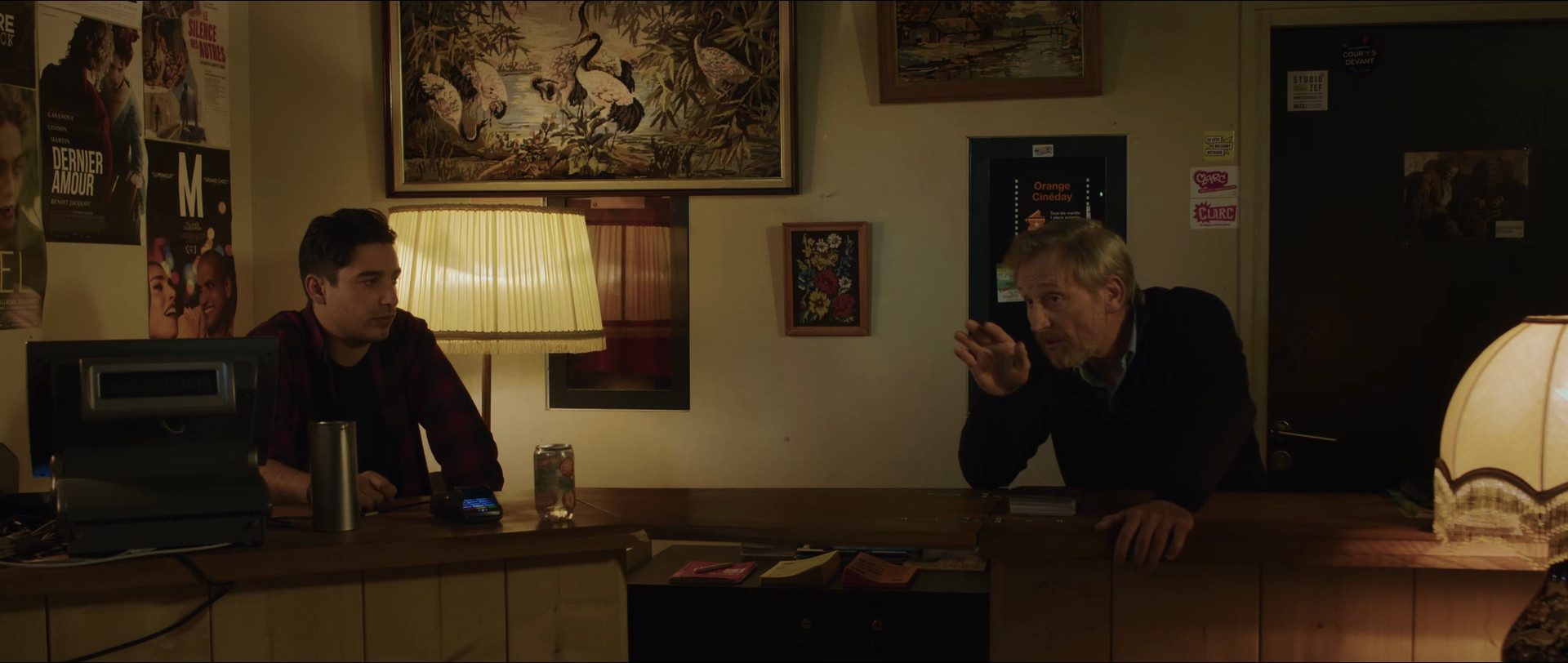Arthouse cinemas seems to have become far more niche in the 21st century. What was once the place to see the latest in boundary-pushing movies is now the slow and quiet place of smaller films, neglected by a public hungry more for blockbusters. Passe Passe Passe is the story of one cinema struggling to hold onto that old-fashioned allure while facing the possibility of closure. And the only one who seems to care is the owner who still has a bit of vigor left in him for showing movies on the big screen.
Claude is the owner of a cinema that is nearing its last legs. Due to a lack of business, he’s forced to discontinue evening screenings. He only plays the older and more artistic films, spanning various new-wave classics and international favorites. The one scene where we actually venture into the theater seems to showcase a Yasujiro Ozu film. Ozu’s movies are considered great cinema but his movies are mostly slice-of-life dramas that may not be as inspirational to a younger crowd who have grown up on more intense bouts of blockbusters.
Claude is facing a difficult time where nobody seems to value his love of movies anymore. He works with a ticket seller who doubles as a bartender, a young guy who spends most of his time on an electronic tablet as there’s nothing to do. His clientele are mostly old folks that either don’t prefer the theater showcase or lounge about in the bar area. Just outside the cinema is a local gang of dancers who Claude believes will attract business but all they really do is hang out and smoke weed. He asks them if they’d ever consider seeing a movie at his cinema. They laugh at his selections, telling him to call them back if he ever decides to play a Tarantino film.
Inside the cinema, there’s a quiet sense of hopelessness. The ticket seller, who Claude spends most of his time interacting with, takes zero pride in his work. Quiet and somber, he speaks frankly about how he doesn’t have any appreciation for such a theater in a struggling town. This is made most evident by him watching a film on his tablet that will be playing at the theater soon anyway. Claude remarks why he can’t just wait for the film to be shown in the best of setting and his employee mutters that it doesn’t really matter. It’s a frustrating commentary on how little value society can place in the theater.
Claude has some hope for humanity. He notices that the only time his employee seems to display anything other than apathy is when he connects with a girl he fancies. He stumbles about in conversation, trying to show an interest in her love of studying flowers. His obsession consumes him that he finds himself spilling drinks at the bar or lost in thought about her beauty. Claude merely watches in amusement, charmed to see any spark of youth in such a place of old people and old movies.
Aside from its bittersweet devotion to theaters that will no doubt appease many cinephiles, there’s a real sense character and world with how such a subtly somber and serene film projects a struggling cinema. We get to know the employees, the visitors, the patrons, and understand just why Claude still holds out hope. With many cinemas already struggling to keep their doors open and the lights on, it’s an incredibly poignant tale about how hard it can be to hold out hope for a passion that you seem to be the only one in town who cares. On that level, Passe Passe Passe is an exceptionally emotional experience that any movie lover can relate towards.








